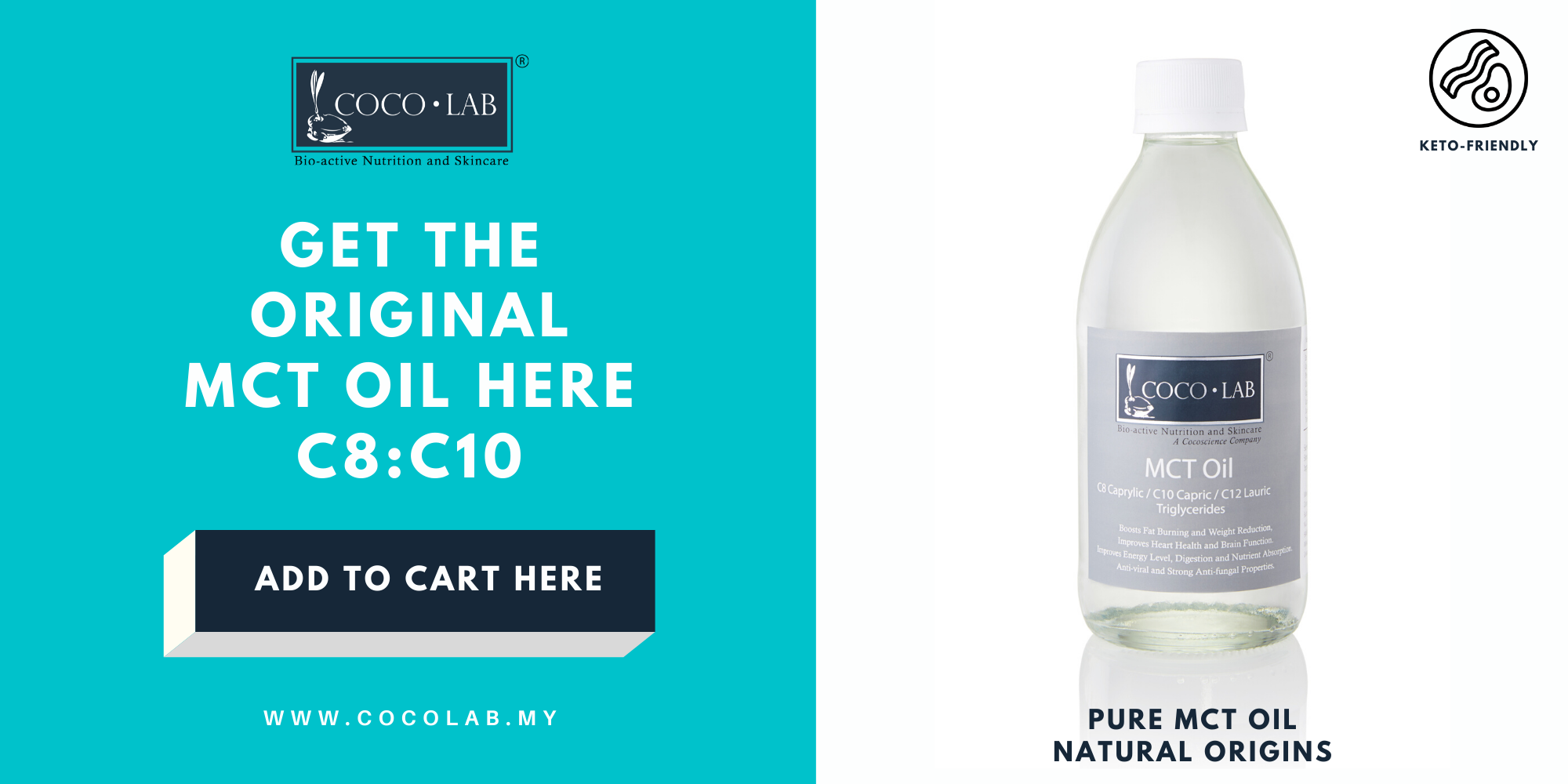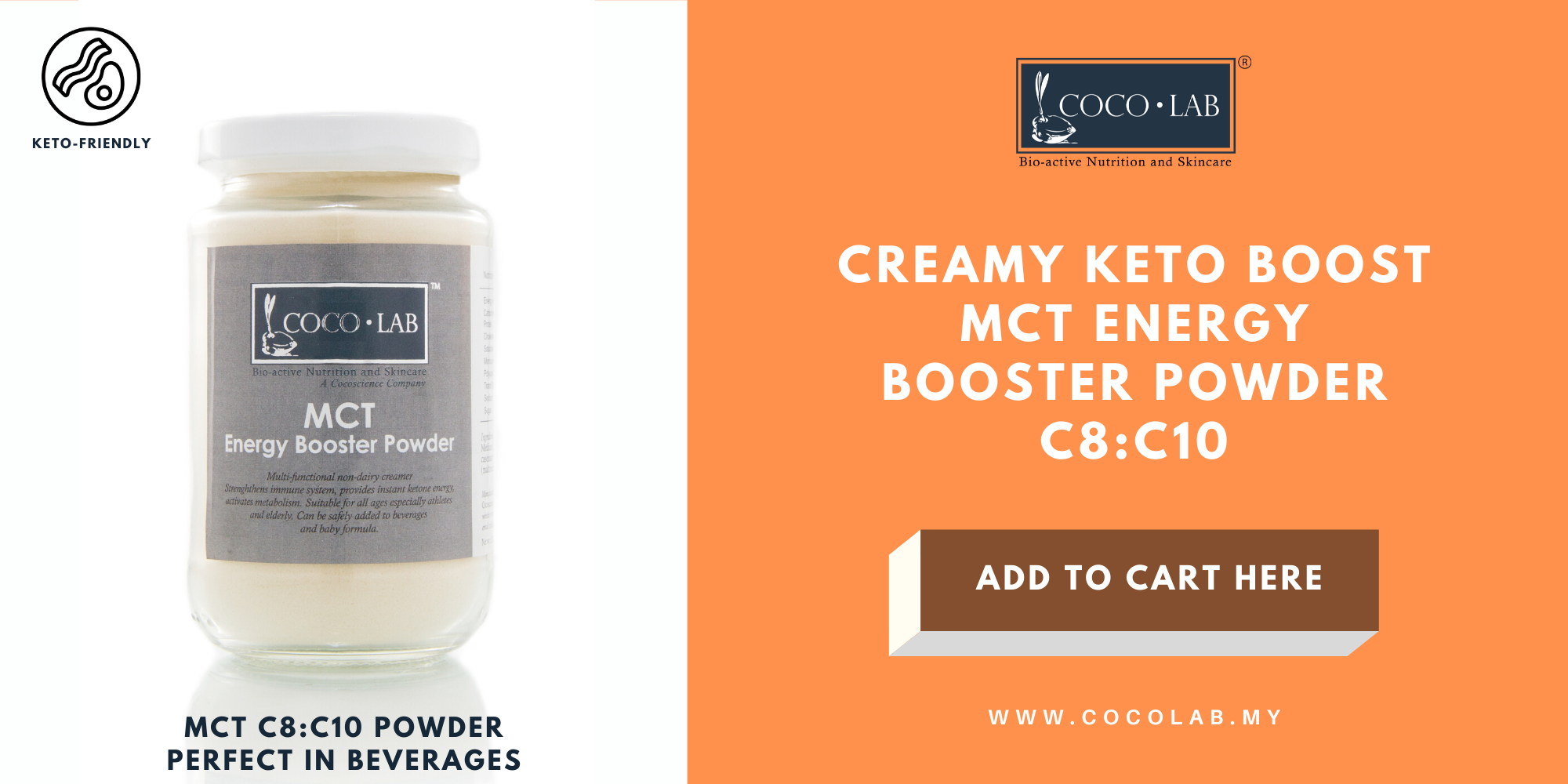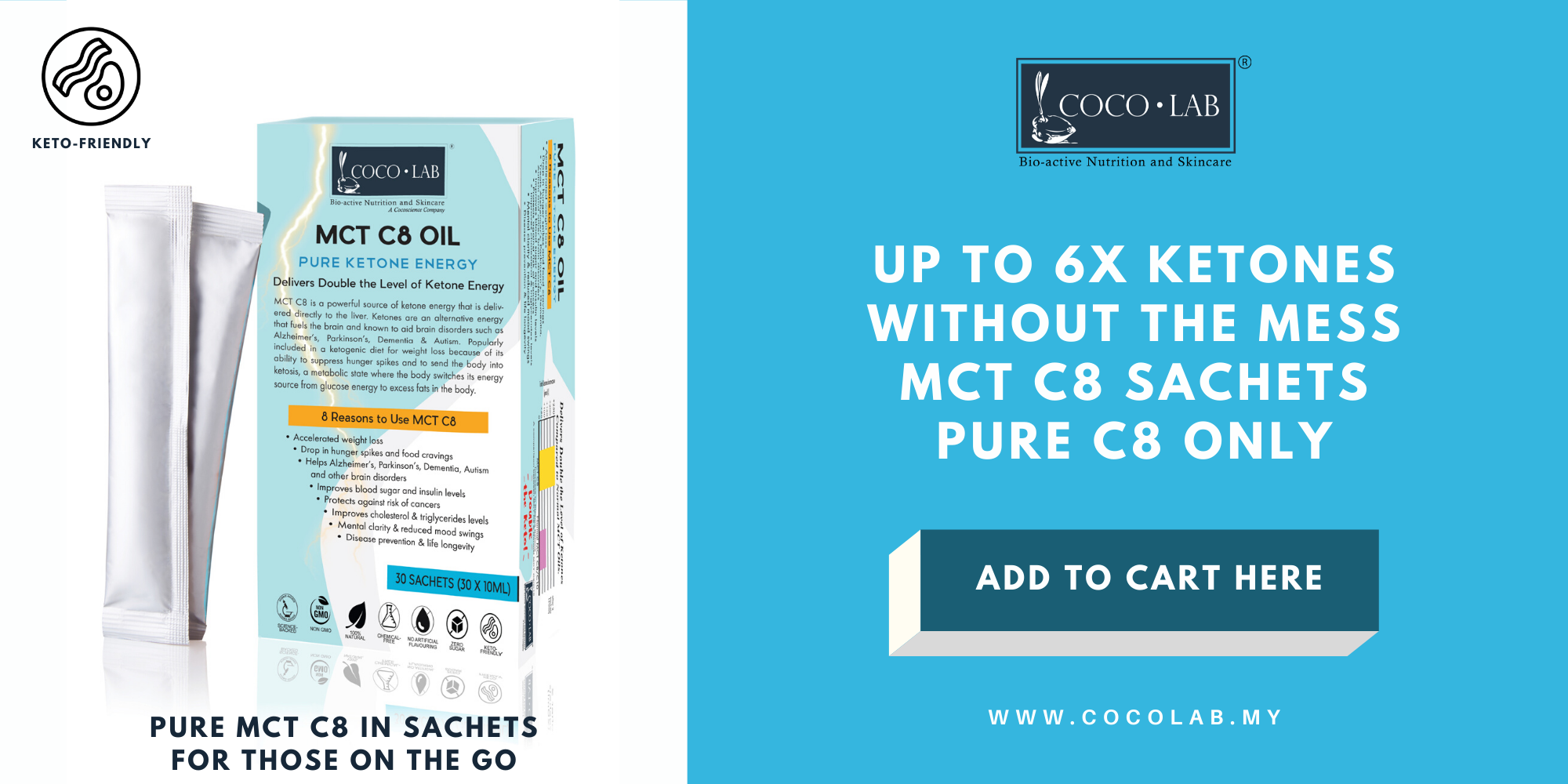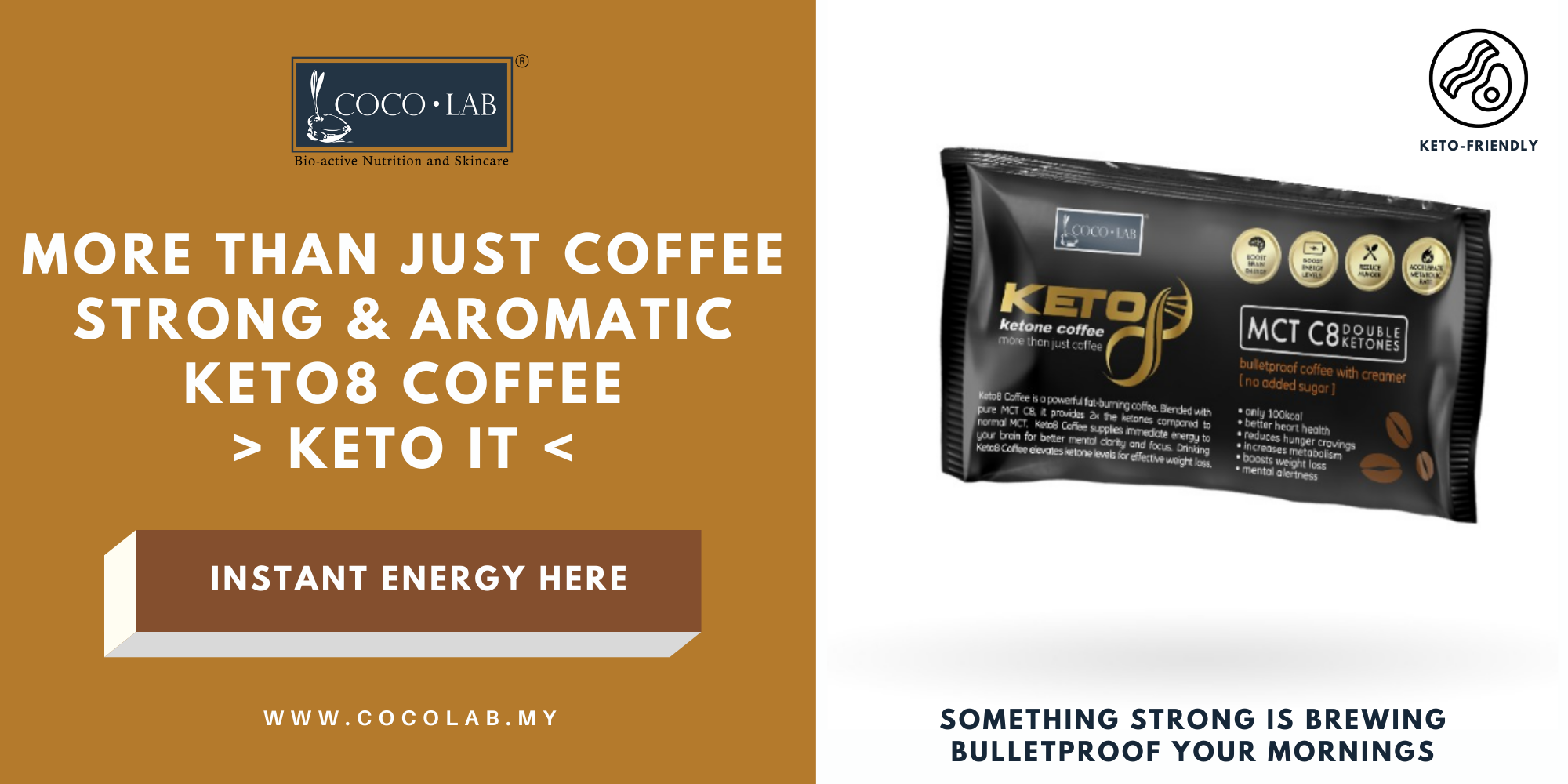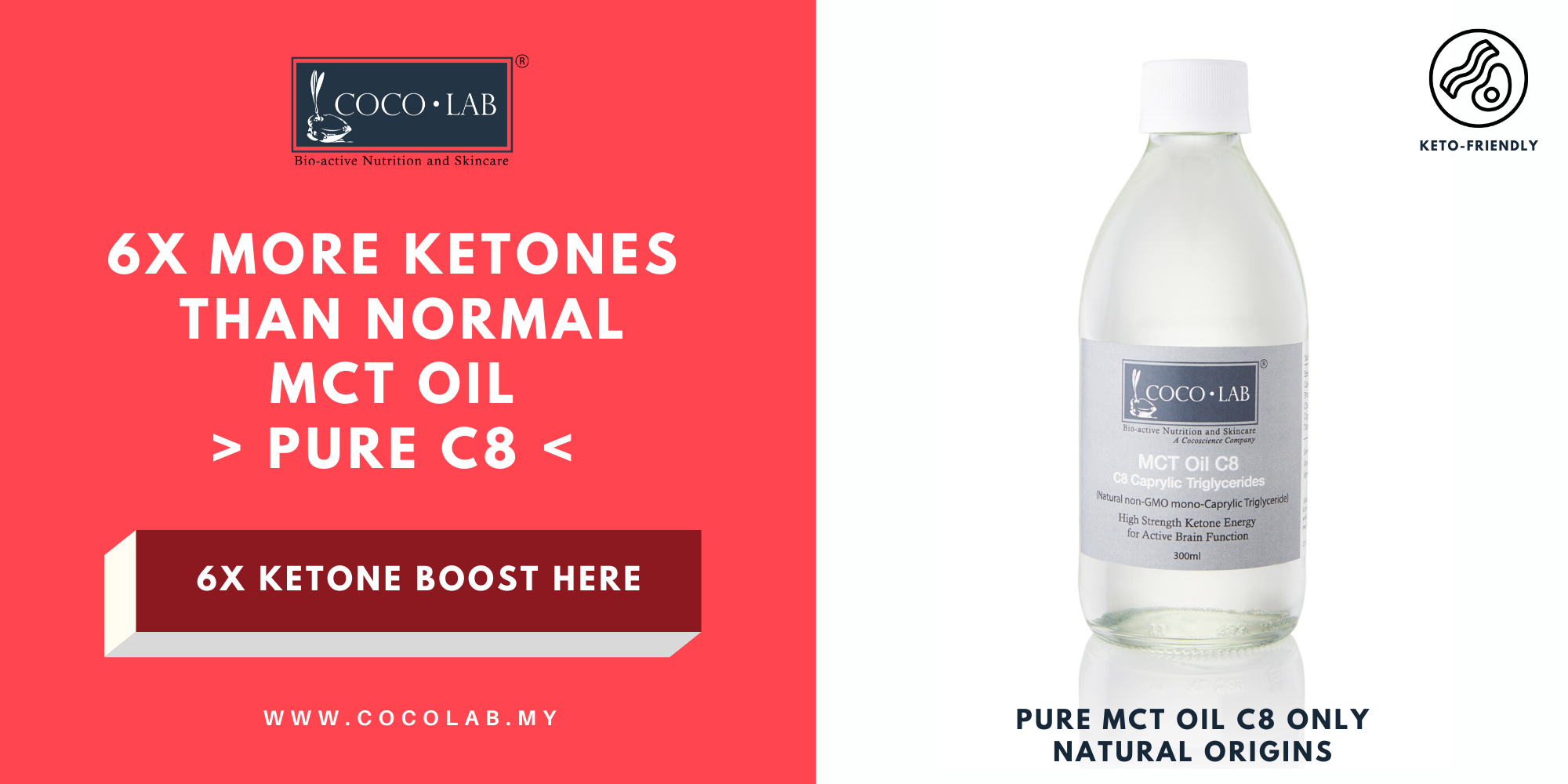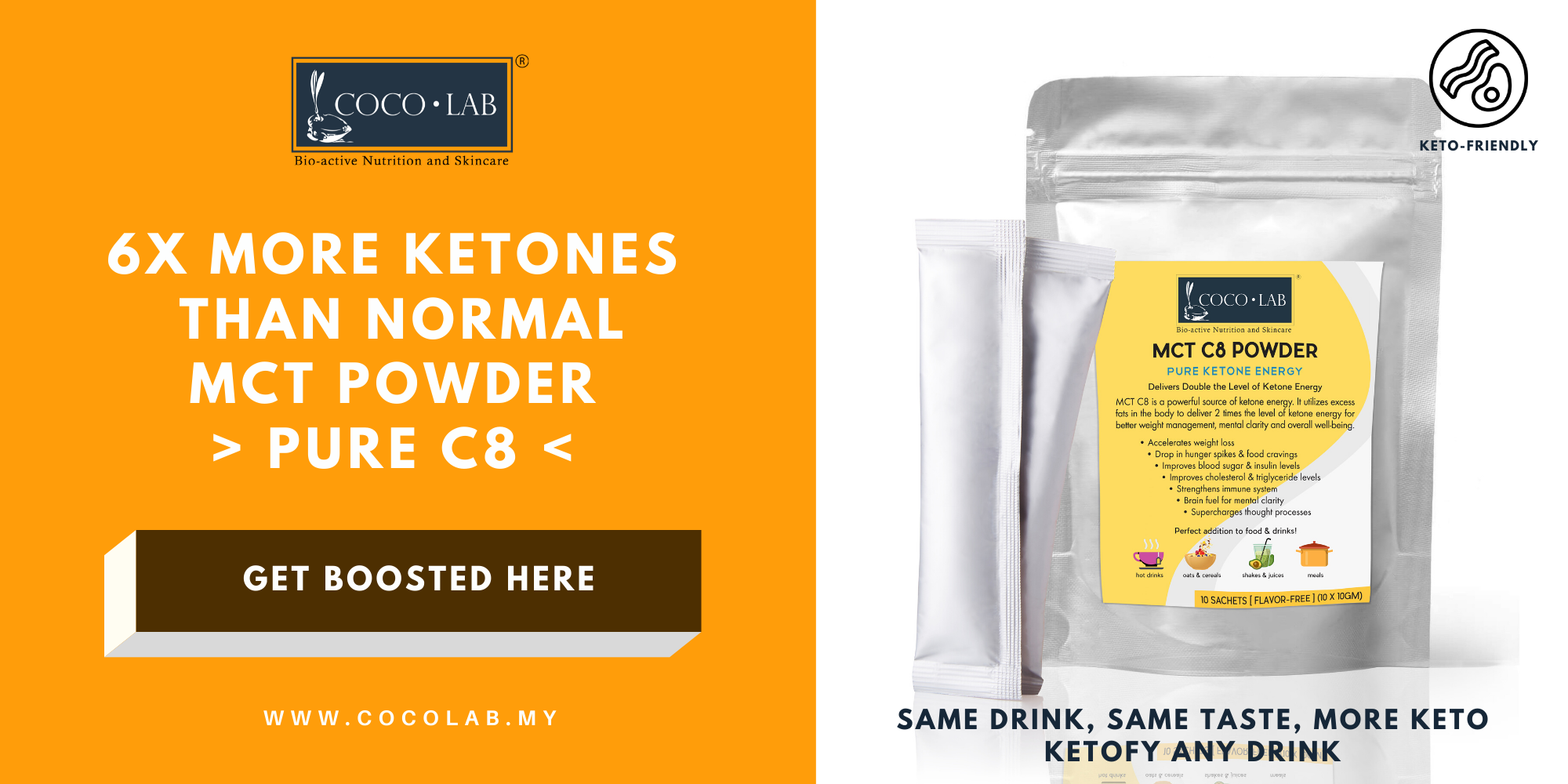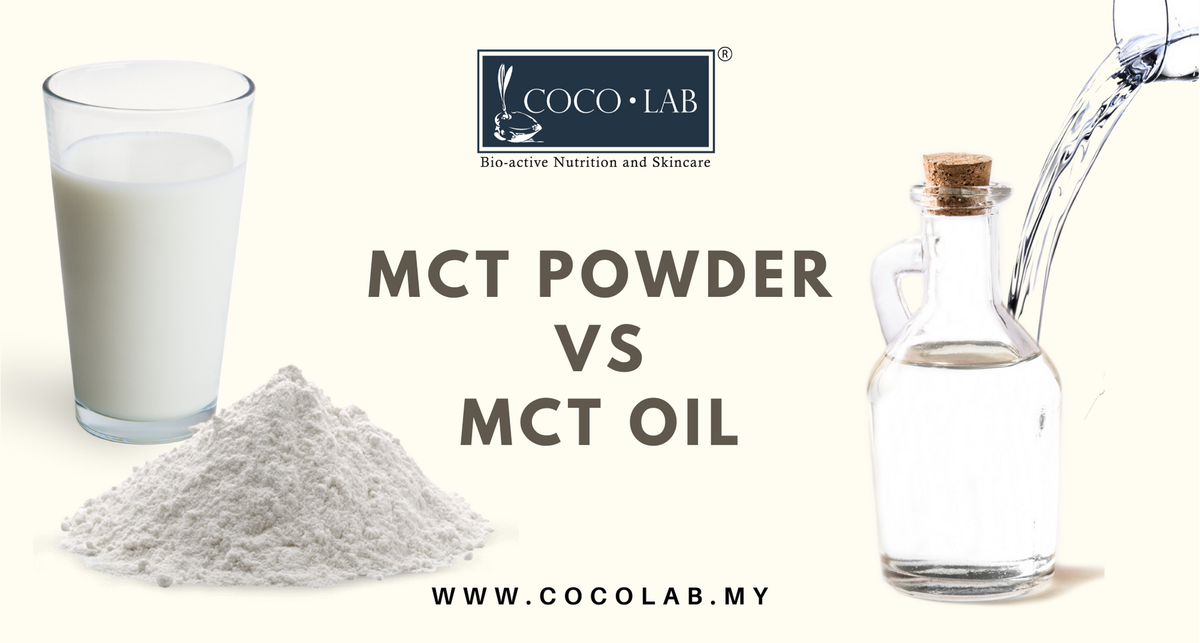
Medium Chain Triglycerides simply known as MCT, have garnered a steady and growing interest as more people experience the benefits of consuming them. While normal diets may already consist of small portions of MCTs, to reap the full benefits, many turn to consuming these healthy oils directly as a dietary supplement. There are a wide range of options when taking MCTs in different forms. Once you’ve taken a step into trying out healthy oils or MCTs, you may find yourself asking this question: Should I take MCT Oil or MCT Powder?
There’s a big debate between taking oil or powder, with some stating stomach upsets and others stating stronger benefits. Read on to find out the pros and cons of taking MCT in its Oil or Powder form and ways you can maximize both types of MCTs.
What is MCT?
Before we distinguish the differences between its oil or powder state, it’s important to get some grounding on MCTs themselves. MCTs are short chain fatty acids that can be found in saturated fats such as coconut oil, palm kernel oil or full cream milk. They are different from their cousin, the unsaturated short chain fatty acids such as omega 3s and omega 6s, and are metabolised much faster in the body compared to long chain fatty acids such as olive oil, avocados and meat.
Another thing to note is the amount of carbon bonds they have. MCT’s typically contain 8-14 carbon bonds, while long chains have 16-20 carbon bonds. This unique structure is the reason why MCT’s are broken down faster and completely in the body compared to longer chain fatty acids, where an excess can be deposited in the body as fat.
Consumption of MCT supplements provide a long list of health benefits such as weight loss, a balanced triglyceride level, mental clarity, heart health and lower blood sugar levels. For those on a paleo diet or a keto diet, taking in MCTs will boost ketone levels in their system or as a method to reduce carbohydrate intake as MCTs give a satiated feeling, keeping you feeling full for longer. Ketones are an alternative source of energy for the body to use and unlike glucose sources, are not converted and stored as fat when there’s an excess. Increased levels of ketone in the body has been shown to promote metabolism and contribute to faster weight loss.
More benefits of MCT Ketones, read our blog post here.
What to look out for when getting MCT?
You can find MCTs naturally in coconut oil, palm kernel oil, full cream milk. Other sources of MCT can be commercial MCT which is a synthetic MCT made by matching certain ratios of naturally occurring MCTs. The four MCTs found naturally occurring in foods are Caproic Acid (the shortest in length with 6 carbons), Caprylic Acid (8 carbons), Capric Acid (10 carbons), and Lauric Acid (12 carbons). Typically, the shorter the carbon chain, the faster it is absorbed or metabolised in the body.
Most MCTs will include a combination of C8:C10 which is generally a safe ratio to go with when trying out MCTs. Some stronger MCTs only contain the C8 carbon chain, which produces twice the amount of ketones 1 when metabolised by the body. (Get C8:C10 MCT Oil here or double up with pure MCT C8 Oil here)
Using MCT Oil
MCT Oils are great when consumed as is or drizzled in salads. When not consumed as is, it can also be combined into drinks such as coffees to create a bulletproof coffee. MCT Oils are also a great and a much healthier option when you are considering some light frying. We don’t recommend deep frying as MCT Oils have a low smoking point, and recommend using Coconut Oil instead as they have higher smoking points.
MCT Powder
MCT Powder is basically MCT Oil made into powder using a process called spray drying. In order for oil to be converted into powder, some necessary ingredients are added in. It is normal to see a range of ingredients such as emulsifiers or stabilisers to make these MCT Powders, as without them, MCT Oil will remain as an oil and cannot be converted into a powder form. Do not be alarmed when seeing these extra ingredients compared to MCT Oil. The amounts used are minute enough to cause any adverse effects.
If MCT Powders do not state them in their ingredients list, it is best to get more information from those manufacturers as they may be hidden under a big chunk of their main ingredients. More commonly, manufacturers of MCT Supplements choose to group these smaller ingredients under a bigger ingredient such as a fibre or a carbohydrate, with little explanation as to what is included in these bigger ingredients.
These necessary small ingredients are vital to physically change oil into fine powder, making them soluble in water. This makes MCT Powder extremely compatible when added into beverages, smoothies and shakes. Other flavour powders can also be added in to achieve a certain taste, making MCT Powder flavour options endless. (Shop our MCT Keto8 Coffee here for great-tasting coffee with some serious energy kick!)
Digestive Side Effects
One of the most common side effects of starting out on MCT Oil or any oil for that matter, are stomach upsets. Other common side effects are nausea and diarrhoea. Most would recommend starting out on MCT Oil slow before building up on the dosage and stomach upsets would naturally go away as the body begins to acclimatize to taking in the oil. However, some with greater stomach sensitivity continue to experience stomach upsets despite starting on a smaller dosage. In this case, MCT Powder supplements would be a better alternative.
Convenience
If you’ve been taking MCT Oil or any other form of oil, you’ll be familiar with the difficulty in carrying a bottle of oil around when you head to work or travel. Spillage is inevitable due to the viscosity of oils (and cleaning up oils on a kitchen counter top requires more work than cleaning up plain liquids.) Unless these MCT Oils come in sachets, you’re better off taking MCT Powder or instant MCT Coffees for a fuss-free, mess-free option.
Texture
MCT Oil is usually consumed as is and usually does not require any mixing. The texture of oil is not for everyone and often times will need some getting used to. Also, mixing oils into liquids often creates a top oily layer, especially if not mixed or blended well. If consuming oil is difficult for you, then MCT Powder would be the better option to get in your dose of MCTs.
Taste
MCT Oils should not have any taste in their C8:C10 or pure C8 ratio, and generally do not alter the taste of your food or beverages when they are added in. However, the texture of drinks can be heavier or thicker once MCT Oil is mixed in. In comparison, MCT Powders can be creamy, flavourless or in a multitude of popular flavours. These options serve a wider pallet and mixing them into liquids usually creates a pleasant taste. (Need a creamy MCT Powder? Or prefer flavour-free MCT C8 Powder?). Just be sure to check out the ingredients labels when it comes to other flavours.
A MCT Powder vs. MCT Oil Comparison
Beyond their physical appearance, the effects of powder and oil are still the same. There are some slight application differences which may make either or a better option for you.
Here is a list of things to look out for when choosing your MCT Oil or Powder. Some of these points can also apply to other oils and their powder equivalents (check out Trimmax Belly Fat Liquid Oil and Trimmax Belly Fat Burner Powder here)
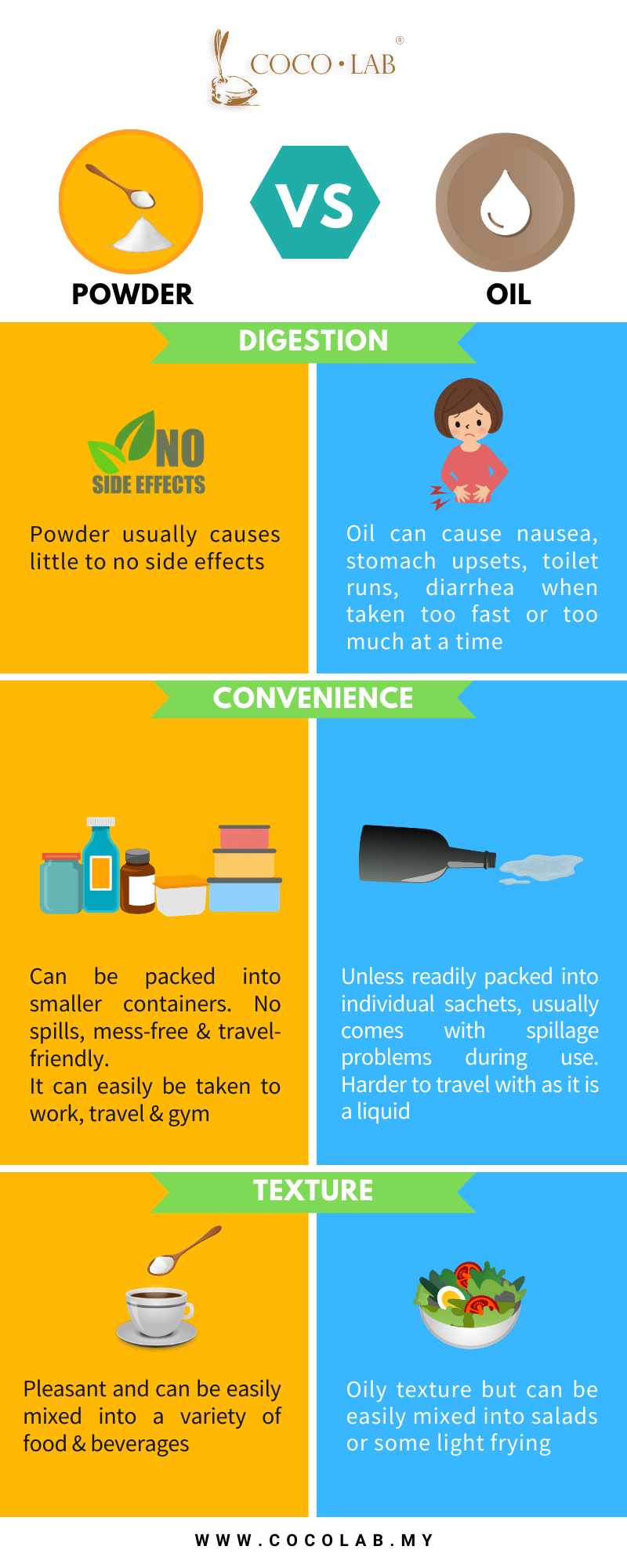
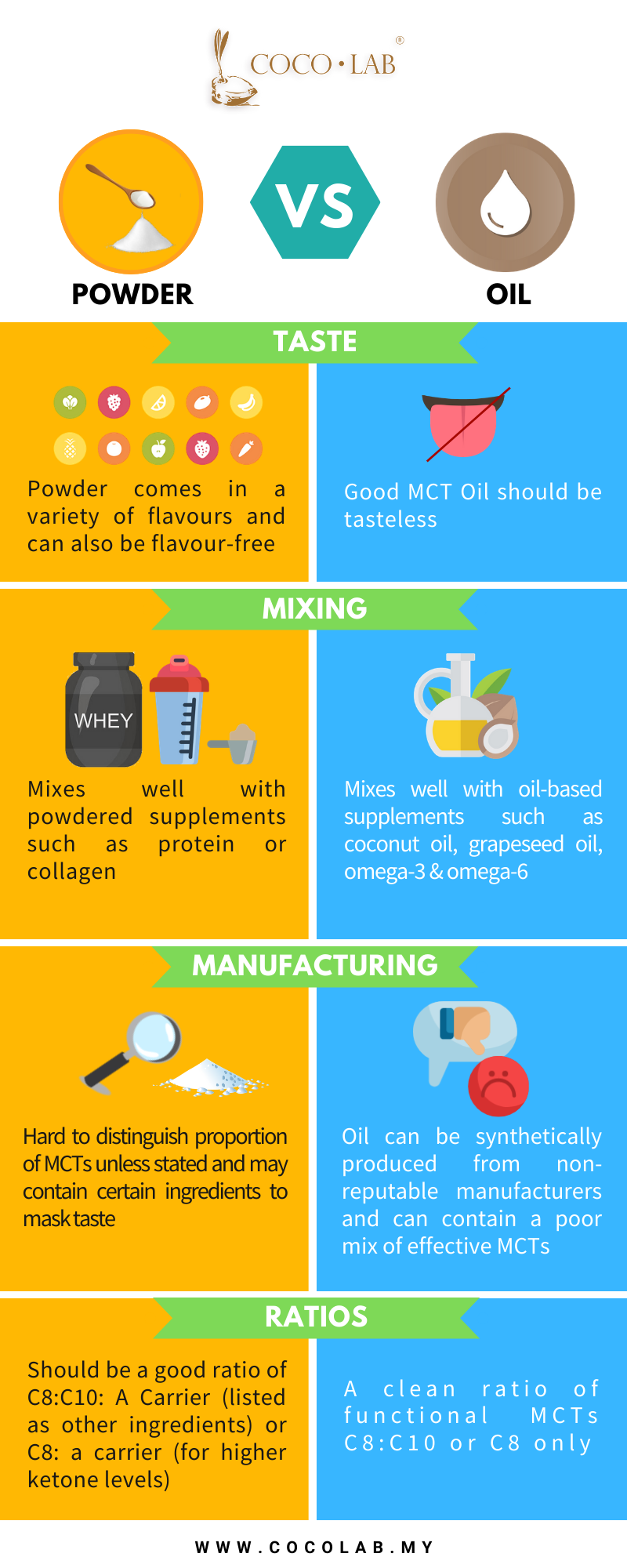
Digestion
- Powder: causes little to no side effects
- Oil: can cause nausea, stomach upsets, toilet runs, diarrhoea when taken too fast or too much at a time
Convenience
- Powder: Can be packed into smaller containers. No spills, mess-free and travel-friendly. You can easily take this to work, travel, gym
- Oil: Unless readily packed into individual sachets, usually comes with spillage during use. Harder to travel with as it is a liquid
Texture
- Powder: Pleasant and can be easily mixed into a variety of food & beverages
- Oil: Oily texture but can be easily mixed into salads or some light frying
Taste
- Powder: Comes in a variety of flavours and can also be flavour-free
- Oil: Good MCT Oil should be tasteless
Mixing with other supplements
- Powder: Mixes well with powdered supplements such as protein or collagen (Check out this MCT + Collagen Powder mix)
- Oil: Mixes well with oil-based supplements such as coconut oil, grapeseed oil, omega-3, omega-6
Manufacturing
- Powder: Hard to distinguish proportion of MCTs unless stated and may contain certain ingredients to mask taste
- Oil: Can be synthetically produced from non-reputable manufacturers and can contain a poor mix of effective MCTs
Ratios
- Powder: Should be a good ratio of C8:C10: A Carrier (listed as other ingredients) or C8: a carrier (for higher ketone levels)
- Oil: A clean ratio of functional MCTs C8:C10 or C8 only
How to use MCT Powder and MCT Oil
As with both types, if you are new to MCT or if you are prone to stomach upsets, the best way is to slowly work up the dosage. This gives your digestive system time to acclimatize to the new supplement and won’t make you run to the toilet in a hurry.
Taking MCT Oil is pretty much a straightforward method. They are usually consumed as is by the tablespoons or by the sachets if available. To jazz it up a little, you can drizzle it over salads or mix it into soups and gravies. A popular method of taking MCT Oil is to also mix it in black coffee to create a “bulletproof coffee”, granted that you’re alright with the texture of oil in your coffee. But for most people who have tried this coffee method gradually, the texture blends well and makes black coffee taste thicker. This of course depends on the quality of MCT Oil you’re getting.
Taking MCT Powder is also easy and can be incorporated in a variety of ways. The most obvious being in your drinks and beverages. Depending on the flavour profile of your MCT Powder, you can choose a creamy MCT Powder to make your beverages creamier and healthier, or you can opt for a flavour-free MCT Powder if you like your beverages tasting just the same.
Since MCT Powder comes as a white powder, adding it into drinks such as apple juices or orange juices would turn them milky. Think of them as healthy fruit yoghurt drinks! Besides creating an array of yummy and healthy drinks, MCT Powders can also be added into soups, gravies and this will thicken them up.
MCT Powder is a popular option when it comes to working out. Take it pre-workout to get the best of your workouts by providing your body with enough immediate energy. Taking it post-workout would also give your body enough energy to heal itself. It goes without saying, you can easily add MCT Powder into your protein shakes too. If you’re looking at building up collagen levels in your joints or even skin, MCT Powder with collagen supplements are perfect for providing more collagen in your intake while giving you an added boost in your metabolism.
The Case with Maltodextrin
A common ingredient found in many powders is maltodextrin. Functionally, it is used to bind the fats or oils to the carrier. Research shows that it encapsulates the oil and holds it within the powder until it comes into contact with water. Most foods, energy bars and protein shakes would also have maltodextrin too in order to give the product a longer shelf life.
Maltodextrin has been widely misunderstood especially when it comes to pure keto dieters. Most keto dieters shun away from seeing maltodextrin in their food labels as they can act as glucose. This is true if your purpose is to look for an artificial sweetener as a substitute for sugar and are purely taking copious amounts of 100% maltodextrin. Purposely taking a whole chunk of maltodextrin for the sake of a sugar replacement can kick you out of ketosis. But, when taken in MCT Powder where it is used functionally to get the oils into powders, the micro amount used has little to no effect on blood glucose levels.
Another reason for using maltodextrin as a functional binder is the effect on the taste of MCT Powders. While some MCT Powders use acacia fibre as a thickener, this usage impacts the end taste of the MCT Powder, making them less palatable compared to maltodextrin thickeners. Since MCT Powder is something that needs to be taken for a period of time, the factor of taste becomes the beckoning crucial point in choosing to continue this supplement or not. Couple this with the lack of carbs and sugars in keto diets, continuing with less palatable MCT Powders make most keto dieters stop short on grounds that it is too restrictive (when it comes to food).
Keto dieters tend to miss out bigger benefits of some MCT supplements with this. When choosing the right types of MCT, such as MCT C8, even moderate quantities of glucose in blood will not stop the ketosis process as caprylic acid is still readily absorbed from the gastrointestinal tract and rapidly oxidized.2
Therefore, maltodextrin should not be the decisive factor in choosing MCT Powders and even more so in MCT C8 Powders as their micro amounts do not kick you out of ketosis and generally taste better. You may be missing out more by skipping out on them without understanding their function.
Which MCT Matters
MCTs can be derived from many different sources, and naturally they are mainly from coconut oil and palm kernel oil. It does not matter where the MCT Oil comes from since the focus is on the MCT component of these oils. What’s more important is knowing what type of MCT you are consuming. This is the pivotal factor in deciding whether you are going to get the complete benefits of MCTs.
Look at the type of Fat
While some MCT supplements can display a higher amount of total fat, knowing the proportion of MCTs in this total fat is essential, especially if you’re looking towards increasing your ketone levels to enjoy all its benefits. Remember to look out for Saturated Fat under total fats, since MCTs are essentially saturated fats. Some MCT supplements, though in high in total fat, do not make up a high percentage of saturated fats such as C8 or C10. Therefore, you could be missing out on a more effective ketosis.
Look for C8
Generally, MCT Oil is available in its C8:C10 ratio. Research has shown that caprylic acid (C8) ingestion increases ketone body production significantly.3,4 But a 2019 research has shown that the MCT C8 was about three times more ketogenic than C10 and about six times more ketogenic than C12 under acute metabolic test conditions, an effect related to the post-dose increase in octanoate in plasma total lipids. 5 (Research report here)
Because powders will need a filler to convert the oil, MCT Powders have a specific ratio of a necessary filler (this comes in the form of a sugar or a carbohydrate), C8, C10 and in some cases C12. If MCT is extracted from coconut oil, C10 and C12 will usually make the bigger bulk of the MCT ratio, and these do not contribute much to elevating your ketone levels. This reduces the effectiveness of the MCT and could lead to a slower journey to ketosis.
That’s not to say that C12 or Lauric Acid is bad, as it plays a vital role in immunity (get an immunity boost with coconut oil here), but little to no effect in terms of ketone levels for weight loss. Therefore, if elevating ketone levels is your ultimate goal, you’ll want to look for pure MCT C8 or at least MCT with a higher ratio of C8 in your MCT supplement.
More on effectiveness of MCT C8, read our blog post here.
Which Should You Choose?
MCT Powder is a mess-free option for those who are always on the go, while MCT Oils do better when you’re at home (MCT C8 Oil in sachets are a good option for those constantly on the go). Unlike MCT Oils, MCT Powder cause less digestive distress especially when taken on an empty stomach or when starting out.
The decision lays solely on your taste preference and your lifestyle. But getting your MCT supplements from a reputable brand is key here, as you will want to reap all the benefits of MCT for a long period of time, whether you are on keto or not.
The benefits of MCT Oil and its powder form are endless, and as such, even stronger versions such as MCT C8 Oil and MCT C8 Powder have become available. Whether you are looking to elevate your ketone levels for weight loss, increased mental focus, better sugar levels, better heart health or increased energy levels throughout your day, MCTs have proven time and time again that it is a beneficial fat that everyone can use in their lives.
You can view MCT Ketones range here or our Weight Management section here.
References:
- Vandenberghe, C., St-Pierre, V., Pierotti, T., Fortier, M., Brodeur-Dubreuil, C., Cunnane, S.C. (2016). Acute plasma ketone response to coconut oil alone or in combination with different medium chain triglycerides. ISSFAL Congress, Banf Canada, Poster Presentation.
- Schwabe, A. D., Bennett, L. R., & Bowman, L. P. (1964).Octanoic acid absorption and oxidation in humans.Journal of applied physiology, 19(2), 335337.
- McGarry, J. D., & Foster, D. W. (1971).The Regulation of Ketogenes is from Octanoic Acid The Role of the Tricarboxylic Acid Cycle and Fatty Acid Synthesis. Journal of Biological Chemistry, 246(4), 1149-1159.
- Miles, J. M., Haymond, M. W., Nissen, S. L., & Gerich, J. E. (1983).Effects of free fatty acid availability,glucagon excess,and insulin deficiency on ketone body production in postabsorptive man.Journal of Clinical Investigation, 71(6), 1554.
- St-Pierrem V., Vandenberghe, C., Lowry, C.M., Fortier, M., Castellano, C.A., Wagner, R., Cunnane, S.C.
(2019) Plasma Ketone and Medium Chain Fatty Acid Response in Humans Consuming Different Medium Chain Triglycerides During a Metabolic Study Day. Journal of National Library of Medicine, 31058159
cocolab malaysia best mct oil pure c8 natural organic mct powder keto diet weight loss coco lab

